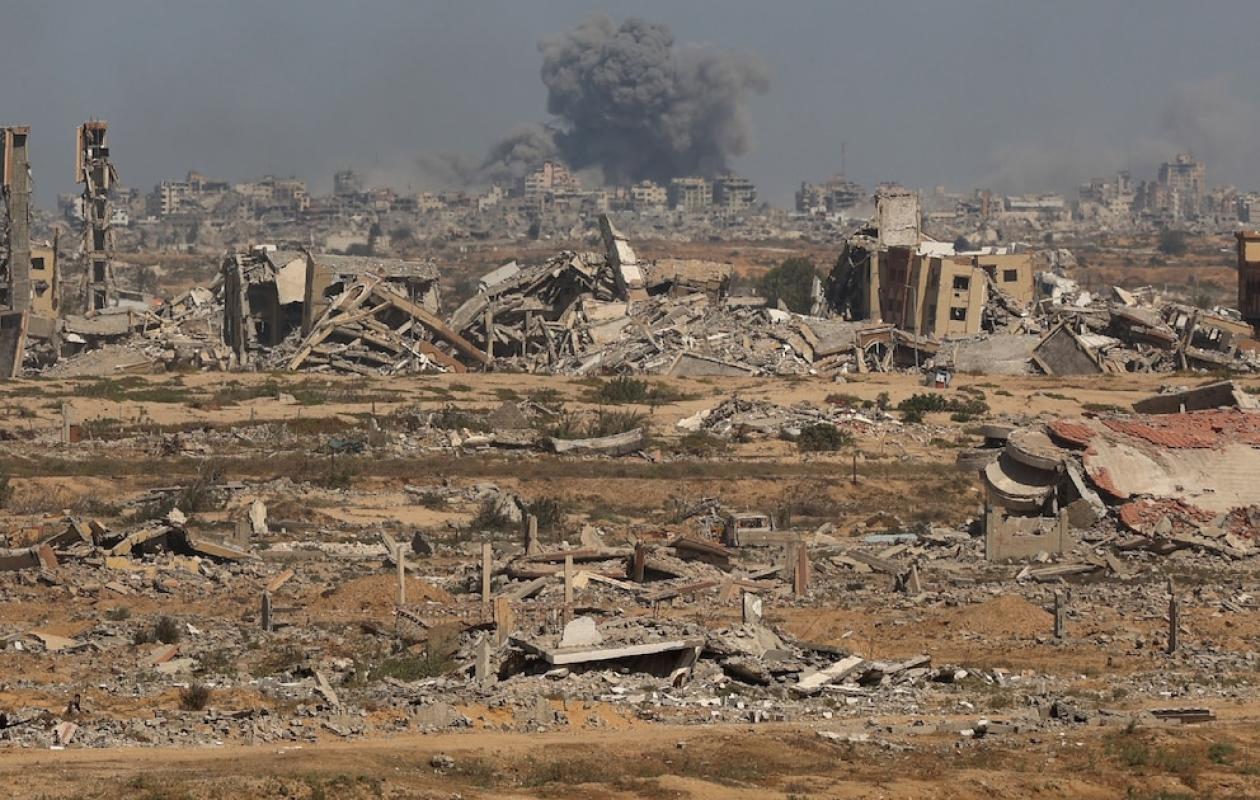
Nouvel ultimatum de Trump au Hamas pour accepter son plan sur Gaza
Donald Trump on Friday gave Hamas until 22:00 GMT on Sunday to accept his Gaza peace plan, which he presented as a "last chance" deal to end two years of war in the Palestinian territory.
The Islamist movement had previously announced that it still needed "a little time" to consider the plan, which Israeli Prime Minister Benjamin Netanyahu said he supported.
But the American president, who had given Hamas a deadline of "three or four days" on Tuesday, set a deadline of 6 p.m. Sunday, Washington time, or 10 p.m. GMT or 1 a.m. Monday in Gaza, for Hamas to accept its plan.
"If this last-chance agreement is not reached, all hell will break loose against Hamas like never before," he wrote on his Truth Social network.
The Trump plan calls for a ceasefire, the release within 72 hours of the hostages held in the Gaza Strip, the disarmament of Hamas, whose October 7, 2023, attack on Israel triggered the war, and the phased withdrawal of the Israeli army.
It also provides for the establishment of a transitional authority headed by Mr. Trump and the deployment of an international force.
The Hamas attack resulted in the deaths of 1,219 people on the Israeli side, mostly civilians, according to a report compiled by AFP based on official data. Of the 251 people kidnapped during the attack, 47 are still being held hostage in Gaza, 25 of whom are dead, according to the Israeli army.
In response, Israel launched a devastating offensive in the small besieged territory, which left 66,288 dead, mostly civilians, according to figures from the Hamas Health Ministry, deemed reliable by the UN.
According to the Gaza Civil Defense, Israeli strikes killed at least 49 people on Friday, including 31 in Gaza City.
When contacted by AFP, the Israeli army did not respond.
Israel launched an offensive on September 16 on this northern city, which it presents as the last Hamas stronghold, forcing hundreds of thousands of people to flee south.
In particular, she urged Palestinians to settle in what she called a "humanitarian zone" in Al-Mawasi, on the coast.
But the United Nations has insisted there is no safe haven in Gaza, calling the Israeli-designated safe zones in the south "places of death."
"The idea of a safe zone in the south is a farce," said UNICEF spokesman James Elder from Gaza.
Supported by several Arab and Western countries, the American peace plan is riddled with gray areas, particularly regarding the timetable for the Israeli withdrawal and the framework for the disarmament of Hamas.
Mohammad Nazzal, a member of Hamas's political bureau, said the "plan has points of concern."
A Palestinian source close to the Hamas leadership told AFP on Wednesday that the movement "wanted to amend certain clauses such as the one on disarmament and the expulsion" of its members.
Another source close to the ongoing negotiations in Doha reported divergent opinions within the movement.
The Qatari mediators "will put pressure on Hamas to give a positive response, even if it does not accept the entire plan," Hugh Lovatt, a Middle East specialist at the European Council on Foreign Relations, told AFP.
"It is not only a matter of convincing the Hamas leadership in Doha, but also that of Gaza, as well as its members and fighters" there, he said.
Meanwhile, in the Gaza Strip, "the situation is catastrophic," said Adnan Abu Hasna, a local representative of the UN agency for Palestinian refugees (UNRWA).
"Tens of thousands of Palestinians are forced into repeated displacement at extremely high costs, and access to food and water remains limited," he added.
Amnesty International condemned "mass displacement" caused by the offensive on Gaza City, adding that hundreds of thousands of Palestinians were forced into "overcrowded enclaves in the south."
Commentaires (0)
Participer à la Discussion
Règles de la communauté :
💡 Astuce : Utilisez des emojis depuis votre téléphone ou le module emoji ci-dessous. Cliquez sur GIF pour ajouter un GIF animé. Collez un lien X/Twitter ou TikTok pour l'afficher automatiquement.